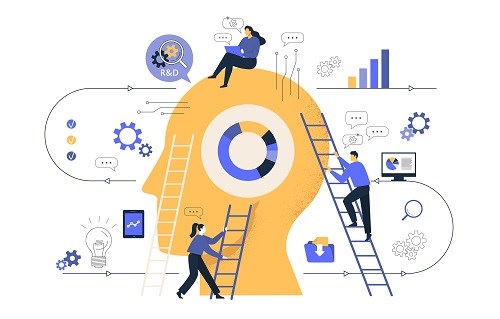Finding your ‘why’
There are many heartwarming and motivational stories about the effects teachers can have on their learners. But, what happens if you don’t have a special story to tell? What effect can you have then? Read on to find out how you are still making a massive difference, and in doing so, how you can find your ‘why.’

A few days ago, I met up with an old friend whom I had not seen for eight years. He currently lives in Jersey in the USA. We were chatting about how they experienced Covid, considering the American experience was very different from what we experienced in Taiwan, where I am based. He told me about a ‘drive-by’ birthday party he had arranged for his young son. A fire engine and police cars drove by the house and turned on their sirens. Then they used the loudspeakers on the vehicles to say, ‘Happy Birthday!’ I said it sounded like a great idea. He asked his son if he remembered it, and his son said, ‘No.’ That was it. We laughed because I can think of many times when I planned something for my own children for hours, only for them to not really recall it. And then we chat about things, and they remember things I cannot recall. But, to them, those things were important, a lot more important than they were to me. This chat with my friend just highlighted again how people around us perceive and remember things very differently from how we remember them, and events that are pointless to us, like the first time my son beat me at chess, might be something he remembers for the rest of his life.
While this story somewhat influenced this blog, I was thinking about writing something highlighting the effect that teachers have on students for a while now. I remember reading Peter Fullagar’s post, Queerience: I am neither a taboo nor an issue about how he connected with a student in a classroom where being a gay man was discussed, and thinking to myself about the massive effect teachers could have on students they teach. Ideas bounced around in my head on the subject for a while … but then, I happened to be hanging out with a few teacher friends chatting about the teachers we remember, and at some point, one of them said, ‘I bet you half the teachers we are talking about don’t even know what we remember about them.’ And that stuck with me, because in a few years, we will be those teachers that have no idea how our students remember us, whether fondly or not so fondly, or if at all.
I think it is important for teachers to focus on the ‘why we teach’, hence the name of this blog post, and to not worry about whether our students will remember us, or even how. Let me explain how and why to do that.

Sometimes learners don’t even realise the impact you have had
It is extremely satisfying to see a learner suddenly figuring out how to decode words and sentences and start reading. Or to get something right that they have struggled with. Now, it is possible that that learner will remember you in years to come, but more often than not, that learner might not really remember how and where they learned what they did, just that moment they managed to say or use a little more English, or achieved something as a result of their learning.
Now, that doesn’t mean we should change what we do in order to be remembered, or start doing fancy tricks in class to stand out, because that is not why we teach. We should keep doing the right things, using our teachers’ instincts and know how … and even if they don’t remember, we as teachers will, and that should be satisfying enough.
Why not try focusing on what you believe to be important? If you do your best, the learners have been given what they need. Trust yourself!

If you teach languages, know how they are learned
Geoff Jordan has an excellent blog on Second Language Acquisition (SLA), yet through it is still insistent that SLA is insufficiently covered in teacher training … across the board. Contrary to such a stance, we spend hours on it in the teacher training courses we teach (as do many other training centres I know of). We also have regular meetings with all staff, teachers and non-academic staff, to highlight how languages are learned and why we teach the way we do.
If we ask our language learners if they enjoy coming to class, the answer would be they do, especially the young learners. But what’s harder to answer is the question their parents often ask, ‘Why can my child not tell me what he learned in class today?’ as the all too familiar answer is because they don’t know. They can tell you what they did, but the nature of language learning means they cannot tell you what they learned. In other words, it’s necessary to aim to have SLA at the centre of what we do (not in the back of our minds) even if it means the language learners cannot remember what they learned in a lesson.
Why not try focusing on pedagogy and regularly reflect on how your own practice matches SLA research and findings? If you teach in a way students actually learn, they will learn, and you will have a massive impact. Trust the research.

The students don’t care about your qualifications (mostly)
Qualifications are very important. In fact, I think they might be one of the most underrated aspects of teaching in places like Asia. However, your language learners don’t care about your qualifications. They care about how much you care.
If you find yourself in a situation where you have stopped caring about the learners, then how are you expecting them to remember you at all?! It is a combination of having the right qualifications to do the right things in class, and caring about your learners enough that they value you as a teacher. And if they still do not remember you many years later, it doesn’t matter … you have had a significant impact on their lives, even if they are blissfully unaware of it. So, listen to what your learners say and pay close attention to how they are feeling.
Why not try not only keeping the words ‘kindness’, ‘empathy’, ‘compassion’ and ‘care’ in the back of your head, but also finding ways to make them visible in your classroom? Trust your students.

Some examples from our chats
One of the teachers told us a story of his gym teacher and another teacher having an argument outside gym class about him (the teacher when he was a student) and part of that involved issues with money and honesty. He only realised many years later why the one teacher distrusted him so much and how much the gym teacher stood up for him. He did do nothing wrong. Did he have the opportunity to thank the gym teacher? No. Does the teacher know that he is thankful or even remembers? No. But what is important is that it doesn’t matter. Our integrity, our hard work, and our caring about students should not be impacted by our desire to be noticed. We should do it because of the reasons we chose teaching in the first place.
Very similar to the reasons we choose to become parents. Not for our children to remember the special birthday party, but to remember all the times we played chess, or went to a movie they really wanted to see, or did something that seemed meaningless to us, because was important to them. And the only way to do that is to keep doing the right things.
Why not try to avoid overthinking what your learners will remember? There are so many things that impact events or a student’s development that it’s easy to overestimate or underestimate our own importance. Trust the process.

Be trusting
I have had days where I felt underappreciated. It is very easy then to keep looking outside of yourself for validation, but the ‘why’ is inside of you. It is your knowledge, your experience, your emotions, and your integrity. The best for me is just sitting down and making sure I am doing the right things and then trusting myself, trusting the knowledge available, trusting those I interact with, and trusting the process. The rest will come.

Comments
Write a Comment
Comment Submitted